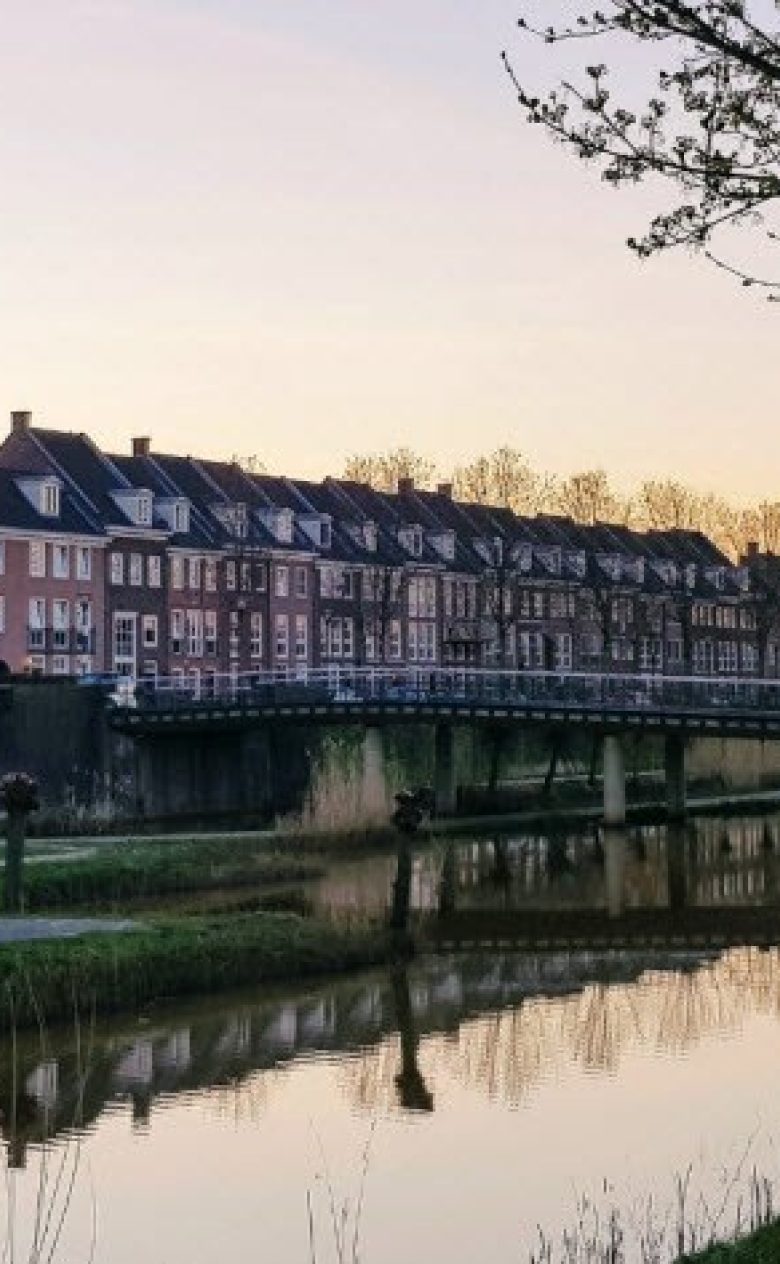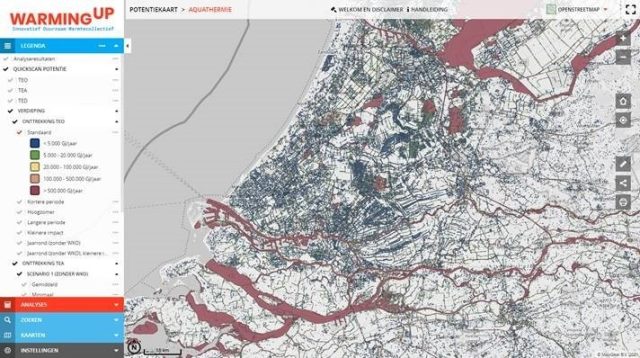Update to web viewer for aquathermal potential
The aquathermal viewer, which shows aquathermal potential in the Netherlands, has been updated. In addition to a quick scan of the potential of thermal energy from surface water (TEO), waste water (TEA) and drinking water (TED), this update also provides an extra in-depth overview of the feasibility of aquathermal energy in a given area.

The aquathermal viewer has been expanded to provide more insight into the feasibility and robustness of aquathermal energy as a heat source and to link up better with the elimination of natural gas as an energy source in the built environment. Interactive maps have therefore been added that show the effects of decisions about the intensity of heat extraction, natural variation, possible ecological risks, the available storage capacity and the financial feasibility of a heat network. A new feature is that users can now also use the viewer to see the potential of TED. An extra functionality – ‘the area analysis’ – has been added specifically for TEO. Users can calculate potential scenarios in the web viewer by varying factors and taking the depletion of the source into account.
Rutger van der Brugge, project leader and transition expert at Deltares: “The new viewer really goes a step further than just a quick picture of whether aquathermal energy is promising for a specific location. The extra features are useful for users working with the Regional Energy Strategy and the Heat Transition Vision, or users who want to use aquathermal energy in a specific location”.
Take a look at the aquathermal viewer on: www.aquathermieviewer.nl (in Dutch only).

The update was carried out as part of the the WarmingUP programme developed by Deltares, Syntraal, KWR and Mapgear BV., with the cooperation of STOWA, Rijkswaterstaat and Network Aquathermie. Using the interactive maps on the aquathermal viewer, municipal authorities, energy strategists, developers and water managers can give aquathermal energy a position in the policy process, project development and permit procedures.
Deltares was responsible for the overall project management and we used the hydrological models to carry out all the calculations relating to TEO. In WarmingUP, the project is covered by the Aquathermal Energy being led by Deltares. Deltares is seeing aquathermal energy becoming increasingly important for the elimination of natural gas as an energy source in the built environment but we also believe that upscaling should be done in a responsible manner. More therefore needs to be known about the factors that affect potential and there should be a focus on the issue of how the heat from the water system should be allocated. In addition to the opportunities, then, the risks such as the possible ecological consequences are also being investigated. This web viewer is one of the ways in which knowledge is being integrated as well as possible in the policy process of the Regional Energy Strategy and the Heat Transition Vision.

